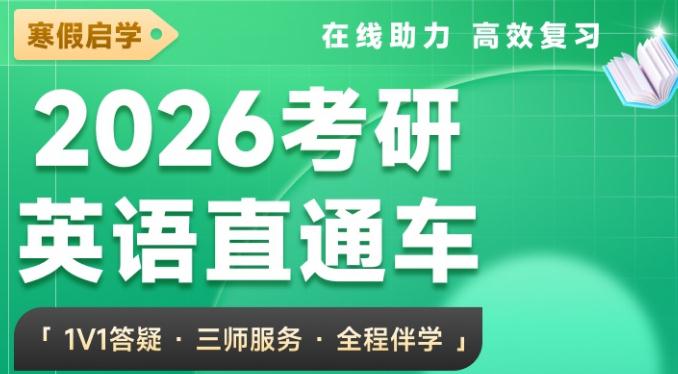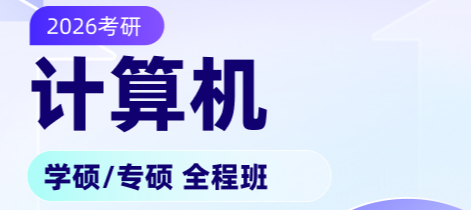1998-2022 ChinaKaoyan.com Network Studio. All Rights Reserved. 滬ICP備12018245號
考研英語時文賞讀:大陸人連榨菜都吃不起了?
Mainland company sends zhacai to Taiwan economist who mocked mainlanders as poor
臺灣財經專家嘲笑大陸人窮,大陸廠家送給他一箱榨菜
A Chinese mainland company has sent a box of zhacai, or pickled vegetables, to the headquarters of a Taiwanese talk show program after a Taiwan economist made an appearance on an episode to mock the idea that mainland residents cannot afford zhacai.
臺灣某財經專家在一檔節目中嘲笑大陸人吃不起榨菜,隨后,大陸廠家向臺灣這檔談話節目的總部寄去了一箱榨菜。
Zhacai is one of the most commonly eaten foods that mainlanders eat together with rice, porridge or instant noodles. A bag of zhacai weigh about 80 grams usually costs three yuan ($0.4), while per capita disposable income of Chinese mainland residents is 28,228 yuan.
榨菜是大陸人最常吃的食物之一,通常作為米飯、粥或方便面的配菜。一袋重約80克的榨菜通常售價為3元(約合0.4美元),而中國大陸居民的人均可支配收入為28228元。
Huang Shicong, an economist in Taiwan said on a talk show program "Crucial Moment" on August 7, that "people in the mainland always eat zhacai together with instant noodles, but now they can’t afford it."
8月7日,臺灣財經專家黃世聰在一檔名為《關鍵時刻》的談話節目中說,“大陸人都吃泡面配榨菜,但他們現在連榨菜都吃不起了。”
Huang said the decline in the share price of Fuling Zhacai, a famous Chinese zhacai maker in Fuling, Southwest China’s Chongqing Municipality, showed that mainland people were too poor to eat zhacai. He wrongly pronounced Fuling as Peiling.
黃世聰說道,涪陵榨菜的股價下跌,表明大陸人太窮了,吃不起榨菜了。涪陵榨菜是位于中國西南部重慶市涪陵區的一家著名的榨菜生產商。他還錯把“涪陵”的“fú”讀成了“péi”。
Mainlanders could not afford zhacai sounds like a gimmick, but this notion reflects that many Taiwanese are ignorant about the overwhelming development of Chinese mainland during the past tens of years, instead they blindly cling to their own prejudices, an employee of the Fuling Zhacai company who requested anonymity told the Global Times on Wednesday.
周三,涪陵榨菜一位不愿意透露姓名的員工告訴《環球時報》,大陸人吃不起榨菜的說法聽起來像是一個噱頭,但這一說法反映出了許多臺灣人并不了解中國大陸在過去幾十年所發生的翻天覆地的變化,相反,他們盲目地堅持自己的偏見。
"We sell more than one million tons of zhacai, or billions of bags of zhacai, every year," the employee said. The revenue of Chongqing Fuling Zhacai Group in 2018 is more than 1.9 billion yuan, a year-on-year increase of about 26 percent, according to the company’s annual reports.
該員工說:“我們每年銷售100多萬噸榨菜,相當于數十億袋榨菜。”據重慶涪陵榨菜集團的年報顯示,2018年該集團營收超過19億元,同比增長了近26%。
Fuling Zhacai announced on Sina Weibo on Sunday that they had delivered a box of zhacai to the program, saying that "we are not only able to afford zhacai, but also to treat you all in the program with zhacai."
周日,涪陵榨菜在新浪微博上宣稱,他們已經向該節目組寄去了一箱榨菜,并稱“我們不僅吃得起榨菜,還能拿榨菜招待你們節目組的所有人。”
"Thanks for your efforts to promote zhacai and Chinese language culture," the company also said on its Weibo account.
涪陵榨菜還在其微博上寫道:“感謝您對榨菜文化普及、漢語言文化推廣所做的努力。”
The zhacai joke is not the first case that Taiwan programs use food to mock the mainland people. On August 11 some Taiwan analysts said in another program that the price increase of Wuliangye, a well-known Chinese liquor, indicates that Chinese mainland residents are drowning their sorrows amid economic downturn.
榨菜鬧劇并非臺灣節目首次拿食物來嘲笑大陸人。8月11日,一些臺灣分析人士在另一檔節目中表示,中國知名白酒品牌五糧液漲價,表明在經濟低迷時期,大陸居民正在借酒消愁。
In 2011, Gao Zhibin, a scholar in Taiwan, said that tea-boiled eggs, at about 2.5 yuan a pop, are luxury food and most mainland people could not afford them.
2011年,臺灣學者高志斌說道,茶葉蛋是一種奢侈食品,大約2.5元一個,大多數大陸人吃不起茶葉蛋。
Huang’s speech made a big splash on Chinese mainland social media. The trending topic of "Taiwan program claims mainland people cannot afford zhacai" has been viewed 980 million times as of press time.
黃世聰的言論在中國大陸的社交媒體上引起了轟動。截止發稿時,“臺灣節目稱大陸人吃不起榨菜”這一熱門話題的瀏覽量已達9.8億次。
Netizens rushed to post photos of themselves being surrounded by bags of zhacai they bought while asking "am I rich enough?"
網友們紛紛曬出被自己購買的袋裝榨菜包圍的照片,并配文稱:“我夠富嗎?”
(全文共466個詞,環球時報)
重難點詞匯:
pickle n. 泡菜;鹽鹵;腌制食品 vt. 泡;腌制
disposable adj. 可任意處理的;可自由使用的;用完即可丟棄的
ignorant adj. 無知的;愚昧的
prejudice n. 偏見;侵害 vt. 損害;使有偏見
splash v. 潑灑;刊登 n. 落水聲;拍水;要聞
來源未注明“中國考研網\考研信息網”的資訊、文章等均為轉載,本網站轉載出于傳遞更多信息之目的,并不意味著贊同其觀點或證實其內容的真實性,如涉及版權問題,請聯系本站管理員予以更改或刪除。如其他媒體、網站或個人從本網站下載使用,必須保留本網站注明的"稿件來源",并自負版權等法律責任。
來源注明“中國考研網”的文章,若需轉載請聯系管理員獲得相應許可。
聯系方式:chinakaoyankefu@163.com
- 2026考研英語全程班 6班
- 權威高配師資親授技巧,教研千錘百煉科學提分。直錄播課相結合精講互動二合一,專業團隊精細化作文批改。講練結合,隨學隨練穩步提升。支持試聽~
- 主講團隊:王江濤、譚劍波、董仲蠡、許聰杰、陳志超、潘赟、鄭艷彤、易熙人

掃碼關注
了解考研最新消息












